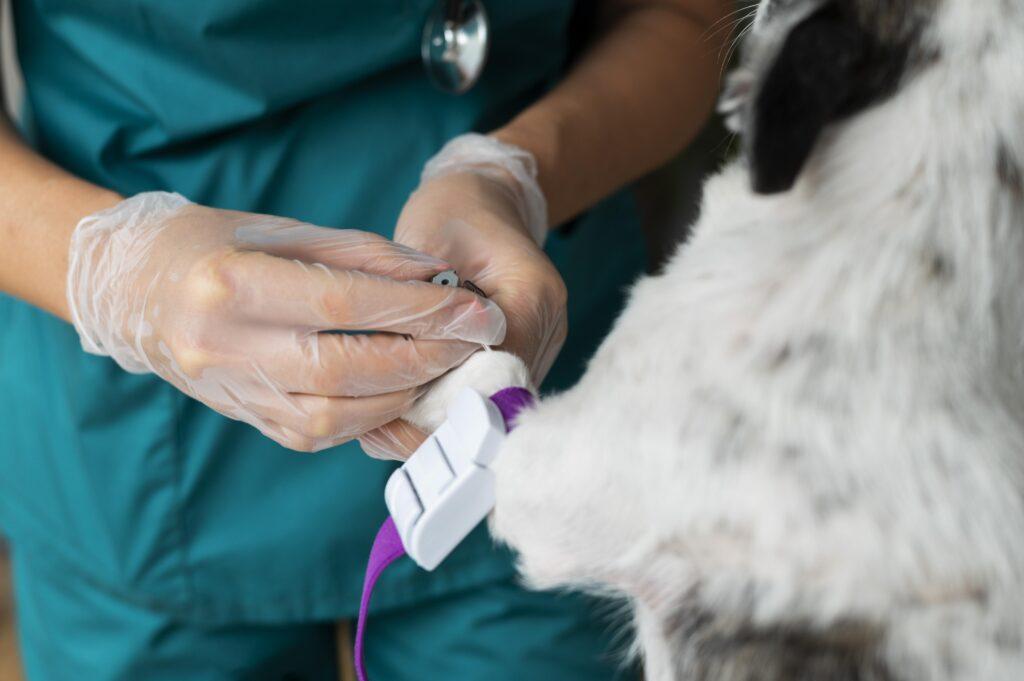The risks of missing pet vaccinations are more serious than many pet owners realize. Even one delayed shot can leave your pet exposed to harmful and often preventable diseases. At Dulham Veterinary Clinic, we know life gets busy, but staying on schedule with your pet’s vaccines is one of the easiest ways to protect their long-term health. In this article, we’ll break down exactly why these appointments matter and how we can help if your pet is overdue.
Why Are Pet Vaccines Important?
Vaccines prepare your pet’s immune system to recognize and fight off specific diseases. Common vaccinations for dogs and cats protect against:
- Rabies
- Distemper
- Parvovirus
- Feline leukemia virus (FeLV)
- Bordetella (kennel cough)
- Leptospirosis
By staying up-to-date, your pet gains long-lasting immunity against illnesses that are not only deadly but often costly to treat.
Risks of Postponing or Skipping Vaccinations
1. Increased Susceptibility to Disease
Missed vaccines leave your pet vulnerable to easily preventable diseases. For example, parvovirus can be fatal in puppies and spreads quickly in public areas like dog parks and grooming salons.
2. Risk to Human Health
Some diseases like rabies are zoonotic, meaning they can be transmitted to humans. Rabies vaccinations are legally required in most areas, including Dulham. Failing to vaccinate puts both your pet and your family at risk.
3. Limited Access to Boarding & Grooming
Most kennels, grooming salons, and pet daycares require proof of vaccination. If your pet isn’t up-to-date, you may find yourself without boarding or daycare options when you need them most.
4. Community Spread of Disease
Unvaccinated pets contribute to the wider spread of illness in the community. One sick animal can lead to outbreaks, especially in shared pet spaces.
5. Higher Veterinary Costs
Treating a preventable disease can be expensive. Vaccines cost a fraction of what emergency treatments or hospitalizations for diseases like distemper or parvo might run.
RECOMMENDED:
Cost of Pet Ultrasounds in Nigeria for 2025: What You Need to Know
Top 10 Veterinary Clinics for Ultrasound & Lab Checkups in Nigeria, 2025
Veterinary Ultrasound & Lab Checkups for Pets: A Comprehensive Guide
What To Do If Your Pet Missed a Vaccine Appointment
It’s not uncommon to fall behind life happens! But the good news is, you can get back on track with a simple call to Dulham Veterinary Clinic.
Our team will:
- Review your pet’s medical history
- Determine the best catch-up vaccination schedule
- Minimize any risk of over-vaccination
- Keep your pet calm and comfortable during the process
How Often Should Pets Be Vaccinated?
While some vaccines are given annually, others may be administered every three years, depending on your pet’s age, lifestyle, and previous vaccination history. Here’s a general guide:
| Pet Type | Core Vaccines | Frequency |
|---|---|---|
| Dogs | Rabies, DHPP, Bordetella | 1 to 3 years |
| Cats | Rabies, FVRCP, FeLV (if at risk) | 1 to 3 years |
📍 For a personalized schedule, book a wellness exam with our Dulham veterinary team.
Don’t Wait Schedule Your Pet’s Vaccination Today
Delaying vaccinations isn’t worth the risk. Protect your pet, your family, and your community by staying current on scheduled shots.
Book Your Pet’s Ultrasound Today!
Visit Us
No 23 Crown Court Estate 2, Orunbe close , Oniru. Victoria Island, Lagos.
Phone Us
Mail Us
Frequently Asked Questions(FAQ)
1. What happens if my pet misses a vaccination?
Missing a vaccination can leave your pet vulnerable to serious diseases like rabies, parvovirus, and distemper. Depending on how long it’s been since the last dose, your vet may recommend restarting the vaccine series or providing a booster to restore immunity.
2. Can I restart my pet’s vaccination schedule if we’ve fallen behind?
Yes! At Dulham Veterinary Clinic, we’ll assess your pet’s medical history and create a custom catch-up schedule. It’s never too late to get your pet back on track.
3. Are there side effects to giving missed vaccines later?
Most pets tolerate vaccines well, even when given later than scheduled. Your vet will space them safely if multiple vaccines are needed, reducing any risk of side effects.
4. How often should my pet be vaccinated?
It depends on the vaccine and your pet’s age, breed, and lifestyle. Some are given annually, while others are needed every 3 years. We recommend scheduling a wellness exam to build a personalized plan.
5. Do indoor pets still need vaccinations?
Yes! Even indoor pets can be exposed to viruses through contact with humans, other animals, or pests. Vaccines like rabies are also legally required, regardless of lifestyle.

